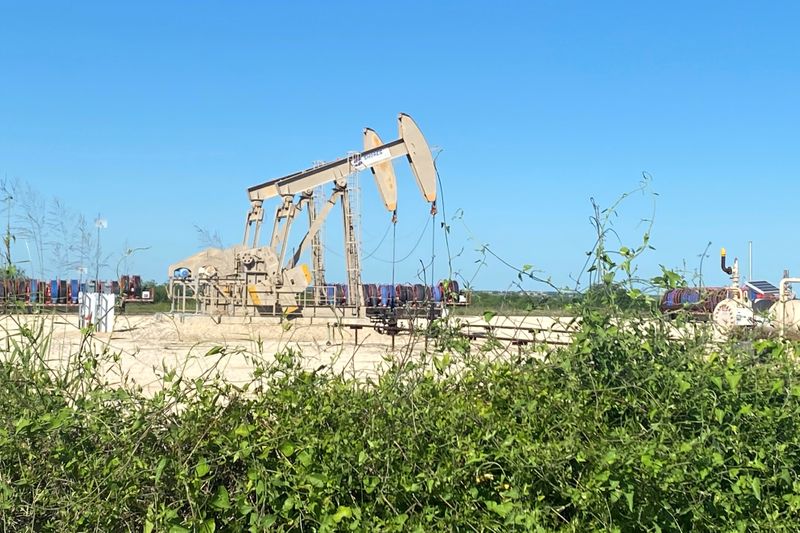By Sonali Paul and Koustav Samanta
MELBOURNE/SINGAPORE (Reuters) - Oil prices dropped on Thursday, weighed down by concerns that U.S. economic recovery is slowing as the coronavirus outbreak lingers, while a renewed wave of COVID-19 cases in Europe have led to reimposed travel restrictions in several countries.
The jitters over demand and economic outlook due to the coronavirus resurgence have prompted a rally in the dollar as investors turned to safer assets, adding pressure to oil prices. A stronger dollar makes oil, priced in U.S. dollars, less attractive to global buyers.
U.S. West Texas Intermediate (WTI) crude (CLc1) futures fell 37 cents, or 0.9%, to $39.56 a barrel at 0650 GMT, while Brent crude (LCOc1) futures dropped 34 cents, or 0.8%, to $41.43 a barrel.
Both benchmarks climbed slightly on Wednesday after government data showed U.S. crude and fuel stockpiles dropped last week. Gasoline inventories fell more than expected, sliding by 4 million barrels, and distillate stockpiles posted a surprise drawdown of 3.4 million barrels.
Still, fuel demand in the U.S. remains subdued as the pandemic limits travel. The four-week average of gasoline demand was 8.5 million barrels per day (bpd) last week, the government data showed, down 9% from a year earlier.
Prices turned down after data showed U.S. business activity slowed in September, U.S. Federal Reserve officials flagged concerns about a stalling recovery, and Britain and Germany imposed restrictions to stem new coronavirus infections -- all factors affecting the fuel demand outlook.
"Oil prices are wilting as product for immediate delivery remains plentiful," said Jeffrey Halley, a senior market analyst at OANDA.
"Consumption outlook concerns are rising as COVID-19 restrictions return in Europe, and the clamour from the Federal Reserve for more U.S. fiscal stimulus, undermines the global recovery case, the lynchpin for oil's price recovery."
On the supply side, the market remains wary of a resumption of exports from Libya, although it is unclear how quickly it can ramp up volumes.
"That clearly is going to be something the oil market doesn't need right now," said Commonwealth Bank commodities analyst Vivek Dhar.

Meanwhile, Iraq's oil minister Ihsan Abdul Jabbar expects an agreement with the OPEC+ group to increase Iraq's crude oil exports, state news agency INA cited him as saying on Thursday.